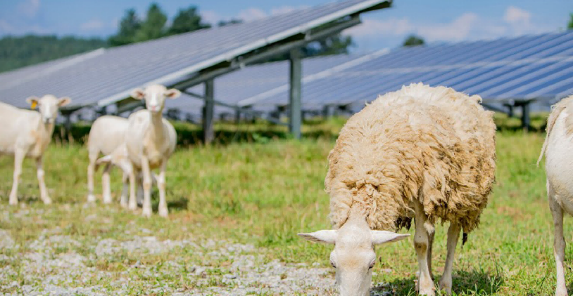Benefits of Solar Energy for Farmers
Cost savings: By generating their own electricity, farmers can significantly reduce their energy costs. Solar energy provides a stable and predictable source of power, allowing farmers to better manage their operating costs.
Increased energy independence: Solar energy allows farmers to become less dependent on the grid and fossil fuels. This reduces the risk of power outages and price fluctuations, giving them greater control over their energy supply.
Environmental sustainability: Solar power is a clean and renewable energy source that produces no greenhouse gas emissions. By using solar energy, farmers can reduce their carbon footprint and contribute to a more sustainable future.
Income generation: Farmers can benefit financially by selling excess energy back to the grid through net metering or feed-in tariff programmes. This can provide an additional source of income for their farm.
Water pumping and irrigation: Solar-powered water pumping systems can be used for irrigation, reducing reliance on diesel or electric pumps. This helps to conserve water and reduce operating costs.
Remote power: Solar energy enables farmers in remote areas to access electricity where traditional electricity infrastructure may be inaccessible or expensive to install. This allows essential equipment to operate and enables technological advances in farming practices.
Long life and low maintenance: Solar panels have a long lifespan and require very little maintenance. This makes them a reliable and cost-effective investment for farmers, reducing the need for frequent repairs or replacements.
Income diversification: Installing solar panels on farms can provide farmers with an additional source of income. They can enter into power purchase agreements, lease land for solar farms, or participate in community solar initiatives.
Overall, solar energy offers many benefits to farmers, from cost savings and energy independence to environmental sustainability and income diversification. It is a valuable investment that can improve the efficiency and profitability of farming operations.

Financing Your Solar Project
When it comes to financing your solar project, there are several options available to farmers. Here are some common financing methods to consider:
Cash purchase: The simplest and most straightforward option is to pay for the solar project upfront with cash or existing funds. This method allows farmers to avoid interest or finance charges and start enjoying the benefits of solar energy immediately.
Loans: Farmers can choose to finance their solar projects through a loan from a bank or financial institution. There are different types of loans available, such as equipment loans, commercial loans, or energy efficiency loans. It is important to compare interest rates, terms, and repayment options when considering this option.
Power Purchase Agreements (PPAs): PPAs are a popular financing method where a third-party solar provider installs and maintains the solar system on the farmer’s property. The farmer, in turn, agrees to purchase the electricity generated by the system at a pre-determined rate for a set period of time. PPAs require little or no upfront capital investment by the farmer and can provide immediate cost savings.
Leasing: Similar to PPAs, leasing allows farmers to have a solar system installed on their property with little or no upfront cost. The farmer pays a fixed monthly lease payment to the solar provider for the use of the equipment. While leasing can provide immediate savings on energy bills, the farmer does not own the system and may not be eligible for certain incentives or tax benefits.
It is important for farmers to carefully evaluate and compare their options based on factors such as upfront costs, long-term savings, ownership benefits, and the financial stability of the chosen financing method. Consulting with solar installers, financial advisors, or agricultural organizations can provide valuable guidance and help farmers make informed decisions regarding the financing of their solar projects.
Post time: Aug-04-2023